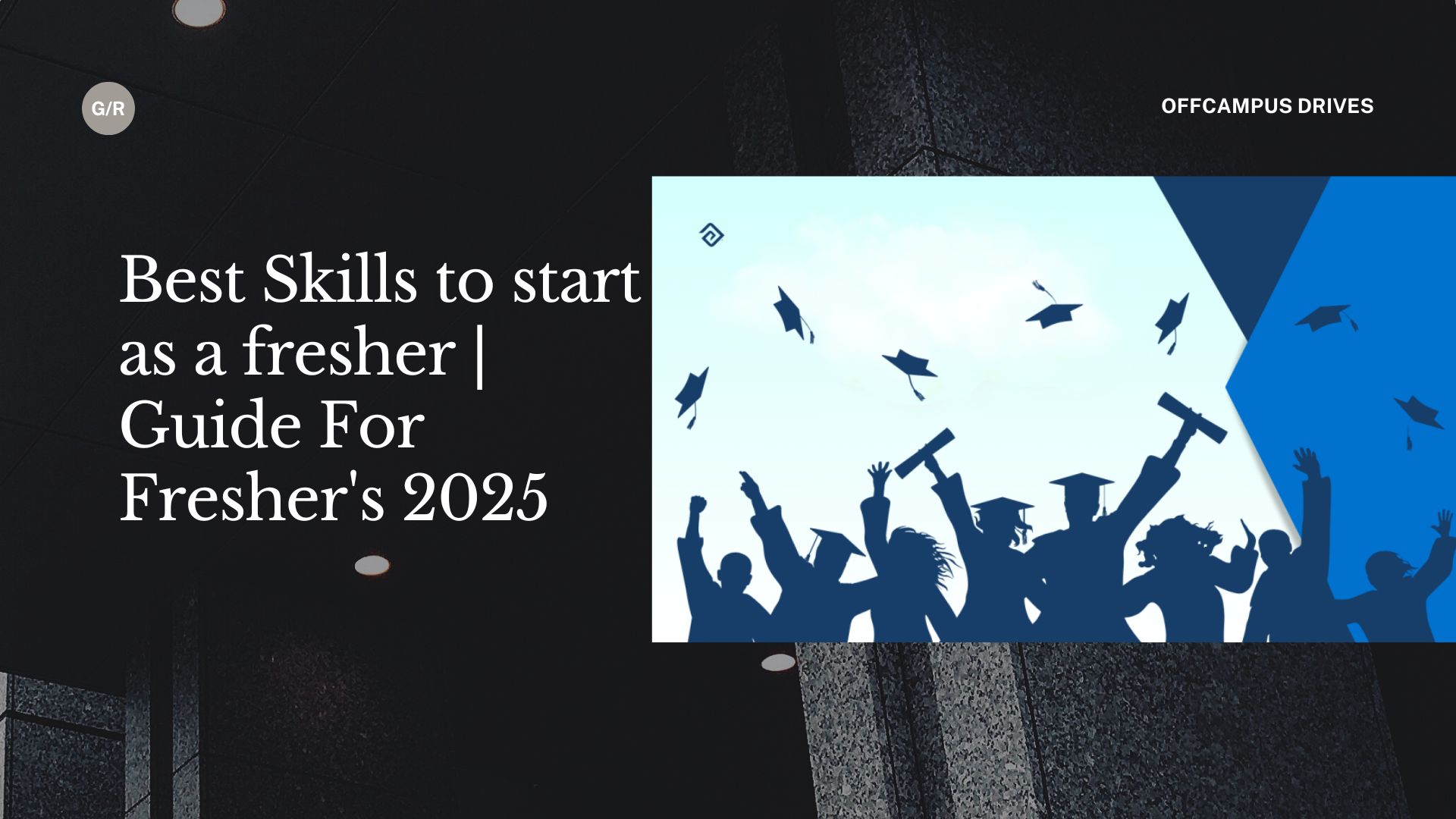As a fresher entering the professional world, it’s important to build a solid foundation of skills that make you employable, adaptable, and future-ready. Here’s a detailed breakdown of the best skills to start with as a fresher, categorized into technical, soft, and digital skills, along with why each one matters:
Top Skills for Freshers (With Details)
1. Communication Skills (Verbal & Written)
Why it matters: Clear communication is essential in every role—whether you’re writing emails, joining meetings, or collaborating on projects.
- Practice speaking confidently in English.
- Improve email writing and professional etiquette.
- Be able to explain technical concepts in simple terms.
💡 Tip: Join public speaking clubs, take online business communication courses, or record yourself explaining topics.
2. Problem-Solving and Critical Thinking
Why it matters: Employers look for people who can think independently, analyze situations, and come up with effective solutions.
- Understand how to break down complex problems.
- Learn decision-making techniques.
- Practice logic puzzles or scenario-based thinking.
💡 Tip: Start with basic case studies or join platforms like HackerRank or LeetCode (for technical roles) to strengthen logic.
3. Teamwork and Collaboration
Why it matters: Most jobs involve working in teams. Being a good team player improves productivity and makes you reliable.
- Learn to respect others’ ideas.
- Practice giving and receiving constructive feedback.
- Use collaboration tools (Slack, MS Teams, Trello).
💡 Tip: Volunteer for group projects or internships where you can interact with diverse team members.
4. Basic Computer Literacy
Why it matters: Even non-technical roles require basic computer usage.
- Proficiency in MS Office (Word, Excel, PowerPoint).
- Understanding file formats, cloud storage (Google Drive, Dropbox).
- Familiarity with emails, online meetings, and productivity apps.
💡 Tip: Learn Excel formulas, create presentations, and manage folders and files effectively.
5. Time Management
Why it matters: In the workplace, you’ll have deadlines, meetings, and tasks to juggle.
- Prioritize tasks effectively.
- Use to-do lists or digital planners.
- Break down work into manageable parts (Pomodoro Technique, etc.).
💡 Tip: Use apps like Todoist, Google Calendar, or Notion to organize your time.
Technical Skills (For IT & Tech Roles)
6. Programming Fundamentals
Languages to start with:
- Python: Easy to learn, great for automation, data science, and scripting.
- Java or C++: Common in enterprise systems and interviews.
- SQL: Essential for database querying.
💡 Tip: Start small — build a calculator, a to-do app, or automate simple tasks.
7. Data Structures and Algorithms (DSA)
Why it matters: DSA is often tested in interviews and improves your logical thinking.
- Arrays, Linked Lists, Stacks, Queues
- Sorting, Searching, Recursion
- Hashing, Trees, Graphs (basics)
💡 Tip: Use platforms like GeeksforGeeks, LeetCode, or Codeforces to practice.
8. Web Development (Optional but Useful)
Even if you don’t plan to be a full-time developer, knowing the basics of how websites work is useful.
- HTML, CSS, JavaScript
- Responsive Design
- Basic hosting and domain knowledge
💡 Tip: Try building a simple portfolio website or blog.
9. Version Control (Git & GitHub)
Why it matters: Most teams use Git for tracking code and collaborating on projects.
- Commit, push, pull, branch, merge
- Create a GitHub profile to showcase your projects
💡 Tip: Use Git even for personal projects to build good habits.
10. Basic Understanding of SDLC / Agile
Why it matters: Knowing how software projects are managed gives you a big-picture view.
- SDLC (Software Development Life Cycle)
- Agile & Scrum methodology (sprints, stand-ups)
💡 Tip: Take a free Agile or Scrum crash course online.
Digital Literacy Skills (For Any Role)
11. Social Media and Online Etiquette
- Be aware of your professional online presence (especially LinkedIn).
- Learn how to behave in virtual meetings and emails.
- Be cautious with what you post online.
12. Remote Work Tools
- Zoom, Google Meet, MS Teams – For virtual meetings
- Google Workspace, Microsoft Office 365 – For document collaboration
- Trello, Asana, Notion – For task tracking
💡 Tip: Try simulating a remote team project with friends or in online courses.
Bonus: Mindset & Learning Skills
13. Growth Mindset
- Be open to learning, feedback, and failure.
- Adapt to new technologies and workplace changes.
💡 Tip: Read books like Mindset by Carol Dweck or follow thought leaders on LinkedIn.
14. Curiosity and Self-Learning
- Learn how to research and find solutions independently.
- Use platforms like Coursera, Udemy, Khan Academy, YouTube, W3Schools to learn continuously.
💡 Tip: Set weekly learning goals (e.g., one new topic or one small project).
Summary Table
| Category | Skills to Focus On |
|---|---|
| Soft Skills | Communication, Teamwork, Time Management |
| Technical Skills | Programming, DSA, Git, SQL |
| Digital Tools | Excel, PowerPoint, Zoom, Trello |
| Workplace Skills | Problem Solving, Adaptability, Growth Mindset |
| Optional Add-ons | Web Dev, SDLC, Agile, Public Speaking |
